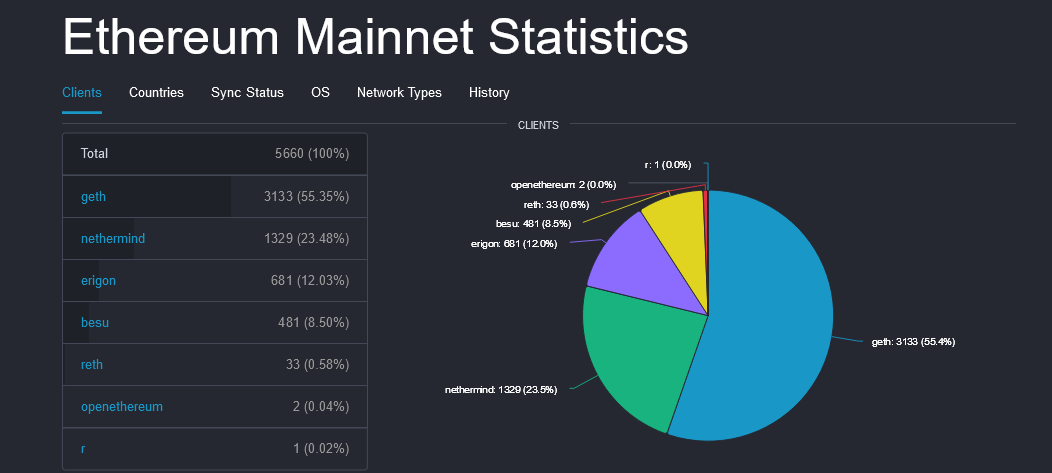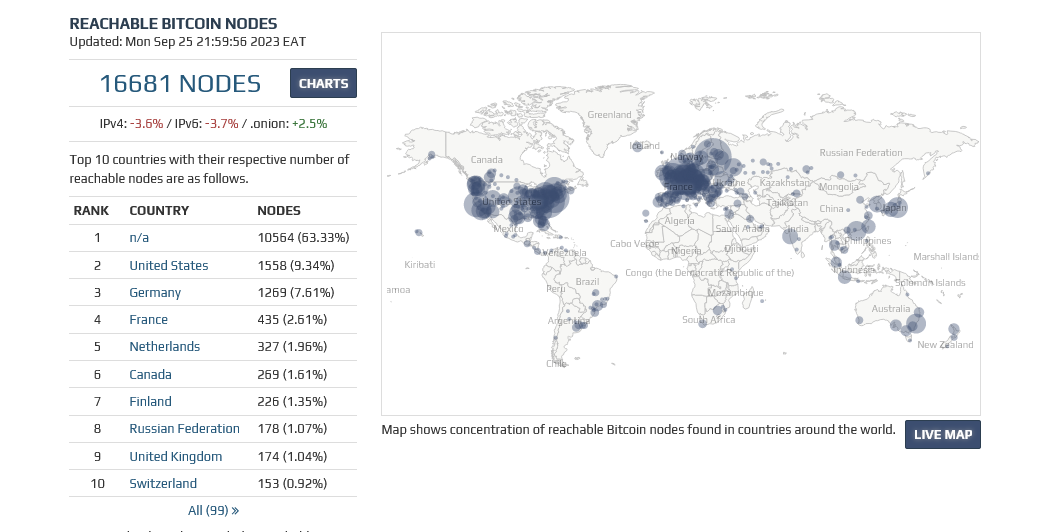Justin Bons, the chief investment officer (CIO) and founder of Cyber Capital, one of Europe’s oldest crypto funds, is convinced Ethereum is the most “robust” network, considering its level of client diversity.
Bons pointed out the distribution of full nodes across various Ethereum clients as evidence of the network’s “unparalleled” level of decentralization. The expert believes decentralization is often overlooked in crypto, but Ethereum sets “the bar high.”
Client Diversity: Impact On Security And Reliability
Bons compared the number of clients in Ethereum and the dominance of Bitcoin core in Bitcoin. Although Bitcoin and Ethereum are legacy blockchains, the approach taken by developers to avail clients is evident.
Client diversity is critical as it can show how well full node operators prefer a given client rail over another. Ethereum, like Bitcoin and other public chains, is decentralized and depends on a community of validators to keep the network secure.
Validators, or miners in Bitcoin, operate full nodes to keep the network operations. However, the blockchain is broken without a client. A client is a software that implements the public network’s specification, enabling secure and effective peer-to-peer (P2P) communication between nodes.
Client diversity is important for the security and resilience of public networks. To illustrate, if all node operators were to use the same client or software implementation, a bug could cause a network outage or even cause other disruptions. With more clients, it becomes harder to halt network operations even if there is a bug, improving reliability.
The improved reliability from diversity and distribution of clients also means better security. An attacker wishing to disrupt operations has to disable all the available clients used by node operators before proceeding.
Ethereum Versus Bitcoin Full Node Distribution
As of September 25, there were multiple Ethereum clients, including Geth, Besu, Erigon, and Nethermind. However, more than half of all Ethereum full node operators prefer Geth, which has a 55.35% market share. Other popular options are Nethermind and Erigon, with a share of 23.48% and 12.03%, respectively.
Of all the nodes in operation, over 74% have synced with the Ethereum network, while around 26% are still syncing.

Looking at full node concentration, most are operated from the United States, at over 43%, and a bigger percentage from Germany, at roughly 13%. A small concentration of full Ethereum nodes from the United Kingdom, Singapore, and France exists.

On the other hand, Bitcoin full node operators mostly exclusively depend on Bitcoin core. According to statistics, 16,681 nodes are mainly distributed globally. There is no country from which over 10% of Bitcoin’s full nodes are operated.











